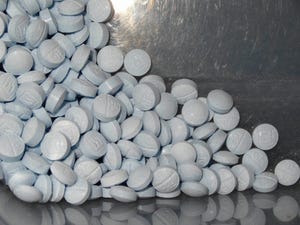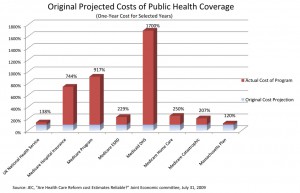This morning I saw a new Facebook poll: "Is Health Care a Human Right?". I voted no.
Do you have a right to health care? Yes. And no. My answer ultimately depends on what you mean by a "right" to health care.
Rights come in two varieties: negative and positive. A negative right can be thought of as the right to be left alone. It's the right to do something without the fear that someone else will restrain you. A positive right can be thought of as the right to be served. While a negative right requires only that someone leave you in peace, a positive right requires that someone actively do something for you.
I believe you have the right to work with the doctor of your choice -- whether or not that doctor has been credentialed by a government.
I believe you have the right to take the drugs of your choice -- whether or not those drugs have been approved by a government panel of experts. I believe you have the right to take experimental cancer drugs, especially as a last ditch attempt to save your life. I believe you have the right to take marijuana to treat pain, to build appetite, and to relax.
I believe you have the right to buy insurance from any company, located in any state, covering any combination of conditions. I belive you shouldn't be limited to only the health insurance that covers a government approved list of condition from a government approved list of companies.
I believe in a strong negative right to health care. That's something that doesn't really exist in America today. Right now, you are not free to receive health care from anyone you trust, you are not free to take the drugs of your choice, and you are not free to buy whatever health care you desire. I am in favor of more freedom in health care. I believe you have a right to consume health care as you see fit, even if the majority of people around you disagree with your decisions. That's freedom.
I don't believe you have a right to force someone else to pay for treatment, medications, or medical supplies. I don't believe you have a right to force a doctor to work with you. It's one thing if you and the doctor can come to a mutual agreement regarding pay and hours of availability. It's something else entirely to require a doctor to treat you at a price of your choosing (not his) and at a time of your choosing (not his). I don't believe you have a positive right to health care.
To be blunt, I don't believe you have a right to turn doctors into slaves (by requiring them to treat for free or at a steep discount) or a right to turn your fellow citizens into slaves (by requiring them to work in order to pay the bills for your health care).
The current discussion of health care rights revolves almost entirely around positive rights -- getting someone else to pay for our health care. It includes an "exchange" that would strictly limit the options available. It includes subsidies forcibly taken from some people through taxes and used to pay for someone else's health care.
It includes a requirement for insurance companies to charge everyone the same price for health care. This practice, known as community rating, allows sicker people to pay less than the cost of their care and requires healthier people to pay more. In effect, community rating is a subsidy to the sick courtesy of the healthy. Community rated health care is a very bad deal for young, healthy individuals. So the current discussion revolves around a health care mandate. Most of the plans under consideration would require young people to purchase something that's a bad deal. They would be required to do this solely to provide a good deal to sick people and the elderly.
Claiming a positive right to health care is nothing more nor less than the claiming the right to enslave your fellow man. I don't believe you have that right.

